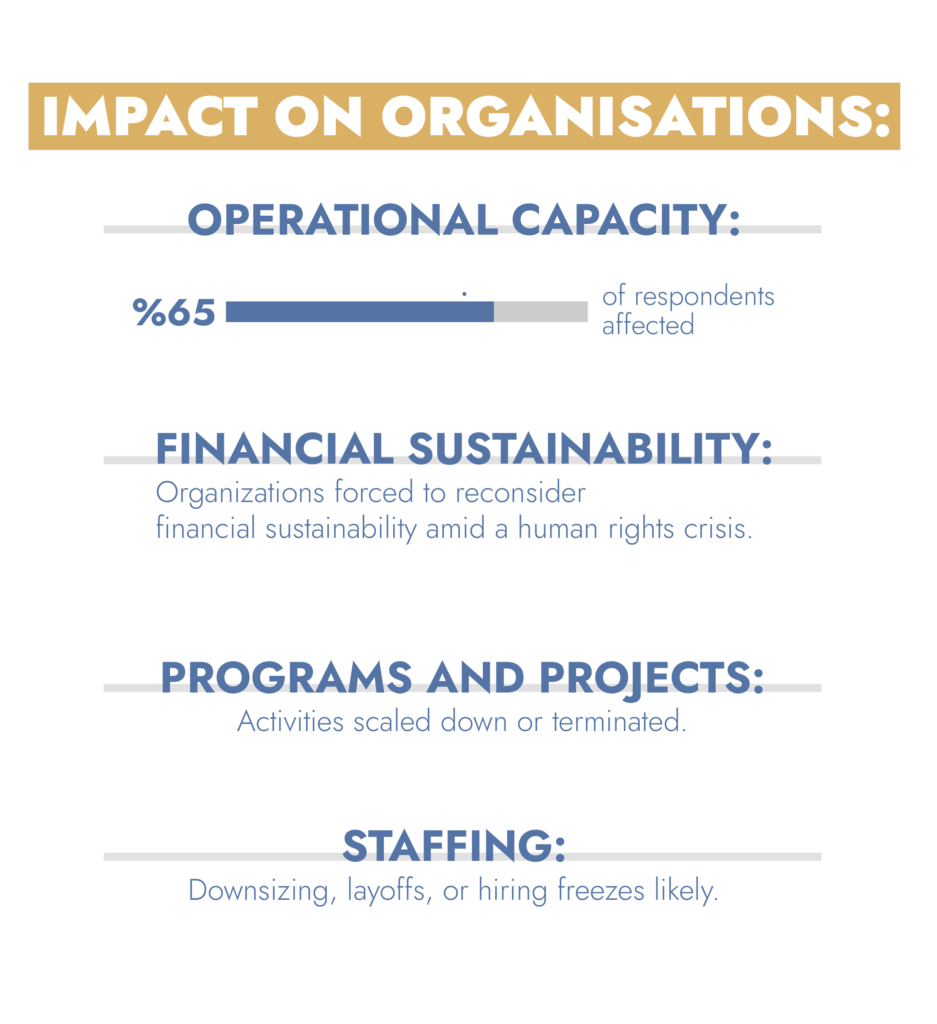Defunding impact on Palestinian organisations
At the end of 2023, EuroMed Rights launched a survey designed to provide an overview of the initiatives taken by European public and private donors to scrutinize, freeze, audit, or de-fund Palestinian organisations since October 7th, 2023, also in relation to previous defunding initiatives.
The survey presented seven mandatory and one optional question aiming to gather specific information about the defunding process that took place since October the 7th. This section provides a preliminary analysis of data generated from the survey by 15th of December 2023.
Survey questions included the following:
- What is the name of your organisation and where is it based? (optional)
- Since October 7, have you been required to submit extra documents or present compliance commitments to your funders? If yes, please specify the funders, and associated requirements.
- Has your organisation been subject to defunding by any actor since October 7? If yes, please specify the actor and the defunding level
- Was your organisation subject to defunding by any actor prior to October 7? If yes, please specify the actor and the defunding level
- Have projects your organisation had planned and agreed upon with funding actors for 2024 been postponed until further notice? If yes, please specify the actor and the type of funding.
- How much funding have you lost, if you lost any funding at all? 7. Has this loss affected your operations at any level?
- If your organisation was defunded, were the contracts in question ending, and were there discussions about renewal?
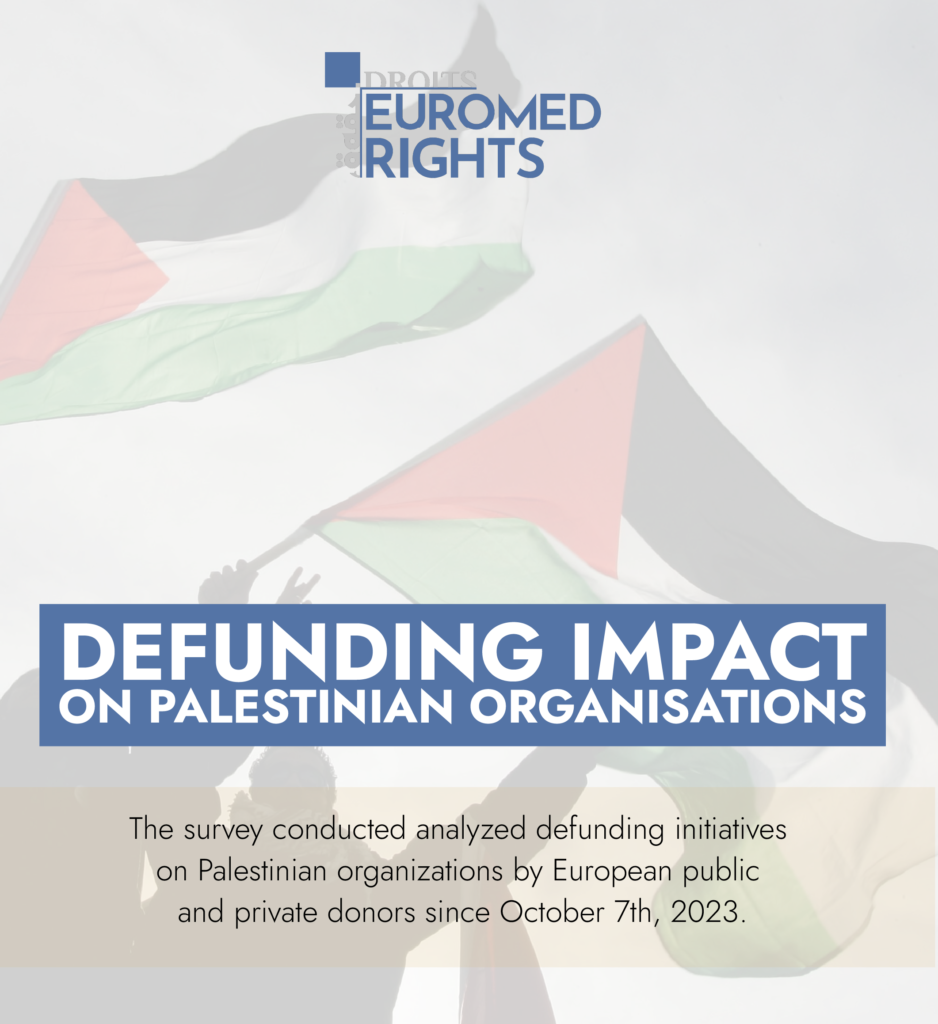
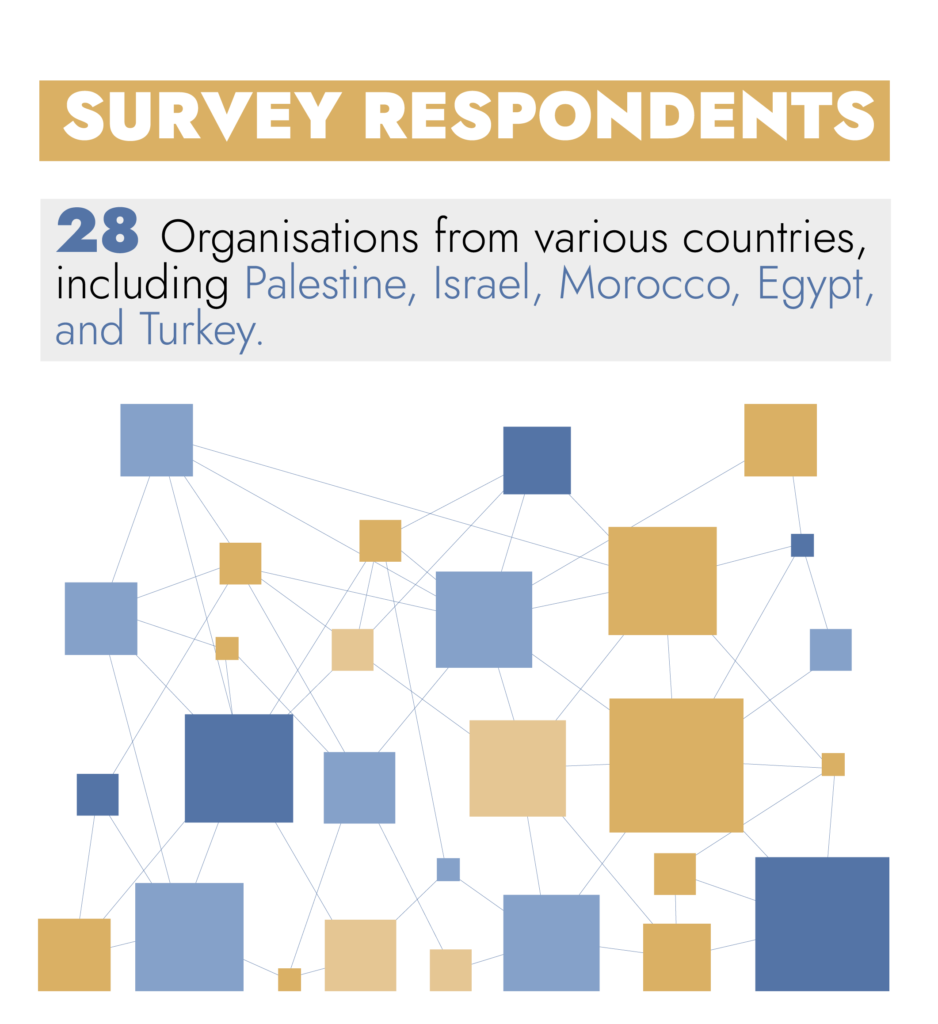
Overall, the survey gathered inputs from 28 organisations from different countries including Palestine, Israel, Morocco, Egypt and Turkey.
37.5% of respondents had to submit extra documents to their funders since October 7th.These included detailed descriptions ofcompliancy with code of conduct and of code of conduct and of code of conduct and of measures in place to ensure that anti- incitement clauses were respected and to ensure that respondents buildings were not being used for other means other than the ones stated as the main professional goal of the organisation. Requirements also included overview of project focus, partner organisations, budget, and time frame in addition to clarification on the organisations’ position regarding certain social media posts made by board members. In other cases, specifically the Swiss one, the review was conducted without any involvement of the concerned organisations in the process.
In 53.85% of the cases observed, defunding has been announced since October 7th, mainly by Sweden, Denmark Switzerland and Germany, in addition to private donors.
In several cases, these actors provide core funding to these organisations. In some cases, programmes were frozen without made without prior consultation with the organisations.
For organisations that had funding resumed, no official confirmation was given that funding will continue in 2024. In one case, the donor announced funding will not continue after the end of the current contract. Funding threatened varies from 35.000 to over 950.000 USD, with some organisations losing 30% of their total core funding. In 37.50% of cases, projects for 2024 have been postponed until further notice. This was only partially following a pre-existing trend, as only 8% of respondent had been subjected to defunding before October 7th.
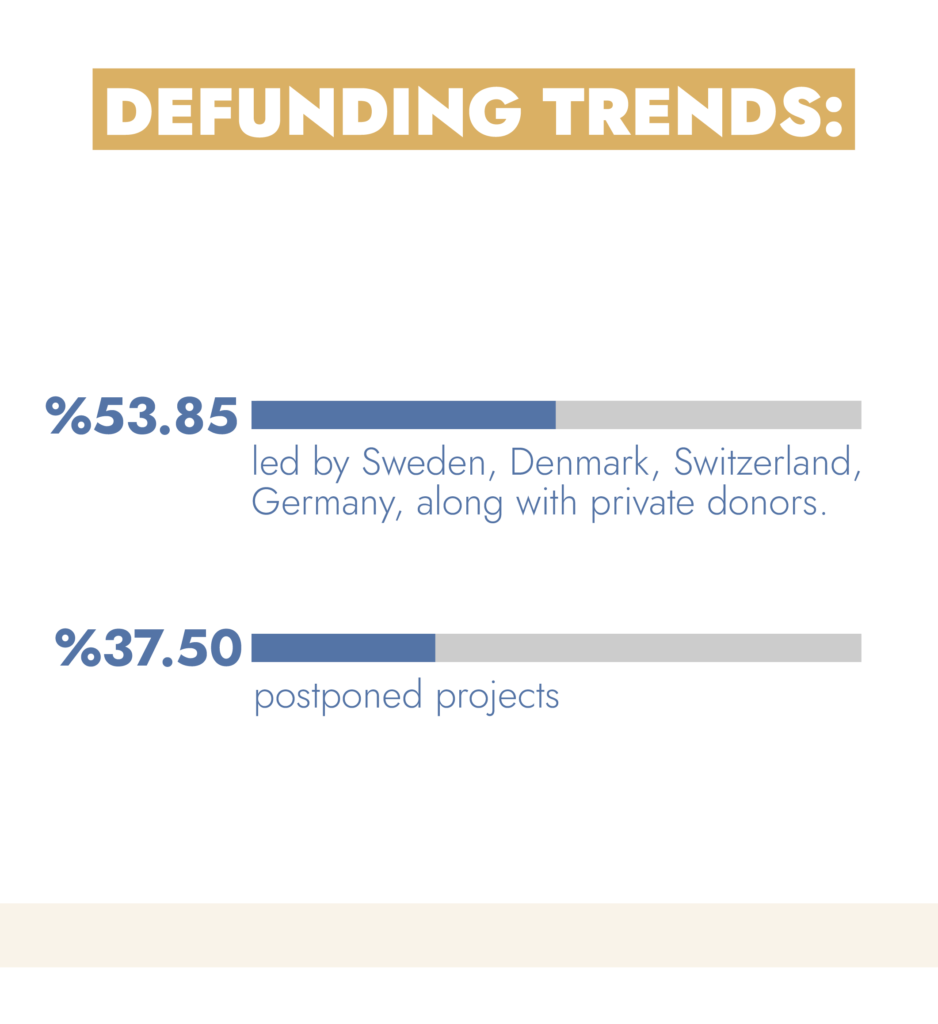
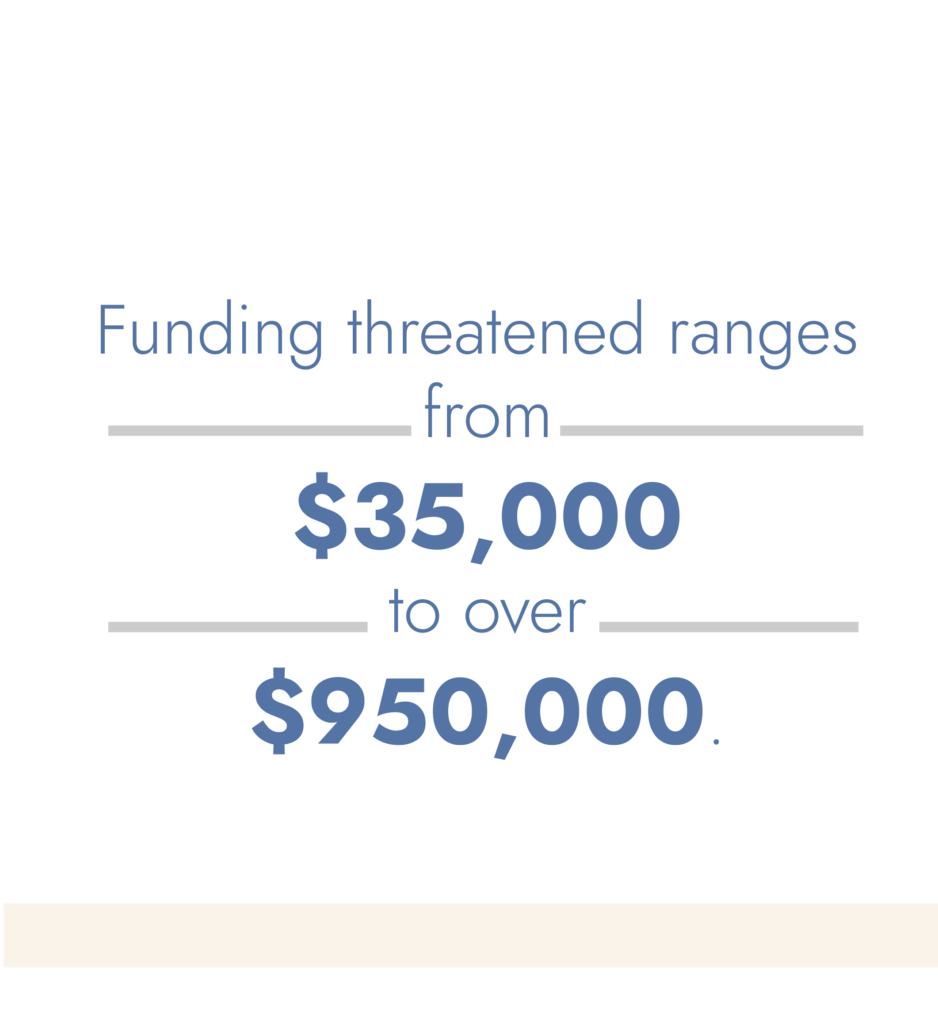
Overall, the defunding exercise has affected the operational capacity of 65% of respondents.
Organisations had to rethink their financial sustainability amid a major human rights crisis, thus diverting energies away from core work. On the programs and project level, significant activities will be scaled down or terminated. On the staffing level, the announced suspension has resulted, or will likely result (should the defunding be confirmed) in organisations downsizing, leading to layoffs or hiring freezes. In one case, seven employees of a centre for the care of victims of gender-based violence had their salaries suspended. This reduction in the workforce directly affects organisations’ capacity to work effectively, and thus directly result in an overall worsening of the human rights conditions of the direct beneficiaries of said organisations. Finally, reputational repercussions are likely to harm the organization›s credibility.
